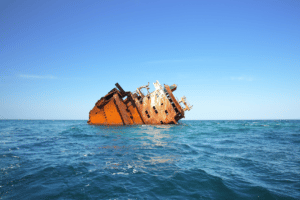The Longshore and Harbor Workers’ Compensation Act (LHWCA) or Longshore Act, compensates for lost wages, medical bills, and rehabilitative treatment to the longshore, harbor, and other maritime employees other than seamen who are injured while working or contract an illness on the job. This compensation is extended to eligible workers under two extensions granted by Congress: the Defense Base Act and the Outer Continental Shelf Lands Act (OCSLA). In cases when the injury or illness results in death, death, or survivor benefits are provided by the Office of Worker Compensation Plans (OWCP), the Department of Labor division tasked to administer the Longshore Act.

Determining Death Benefits and Eligibility
Per the OWCP, if a worker dies as a result of an injury sustained at work, a spouse and/or surviving children are entitled to benefits based on the worker’s average weekly wages (AWW). The individual amount will vary on a case by case basis, but generally speaking the AWW is determined by looking at the worker’s wages for the entire year (52 weeks in all) and dividing by 52.
Per the Department of Labor, death benefits can’t be less than the national average weekly wages that were in effect when the worker died. Additionally, the total amount paid may not exceed either 200% of the national AWW or the deceased worker’s AWW, depending on which figure is the lowest.
The OWCP has set the following survivors’ benefits distribution formula for spouses and/or surviving children, based on the worker’s AWW at the time of death:
- Widow/Widower Only: 50% of AWW
- Widow/Widower and One Child: 66 ⅔% of AWW
- Widow/Widower and Children: 66 ⅔% of AWW
- One Child: 50% of AWW
- Two or More Children: 66 ⅔% of AWW
In addition, Longshore Act death benefits include reasonable funeral expenses up to a maximum amount of $3,000.
The OWCP also pays survivor benefits to other family members, provided that they were dependent on the maritime worker. Per the Longshore Act, benefits may be paid to:
- Parents
- Grandparents
- Brothers and/or sisters
- Grandchildren
When Do Benefits End?
If a widow or widower remarries, OWCP will pay a final lump sum compensation package covering two years’ worth of benefits. Payments to the worker’s children, siblings, and grandchildren usually end on their 18th birthday. However, if they are students at an accredited academic institution, payments may be extended until after their 23rd birthday. Longshore Act benefits may also be extended permanently to a child who remains unable to work or live independently as a result of a physical or mental disability.
Statute of Limitations
In order to file a claim for survivor’s benefits, a spouse or other eligible dependent family member must submit a written claim with the OWCP within one year of the worker’s death. The claimant can apply for benefits by completing a LS-262 Claim for Death Benefits form.
Additional Resources on LHWCA Death Benefits
For additional resources on LHWCA death benefits, refer to the United States Department of Labor’s “Division of Longshore and Harbor Workers’ Compensation” page. For more information on LHWCA, visit our “The Longshore and Harbor Workers’ Compensation Act” page.